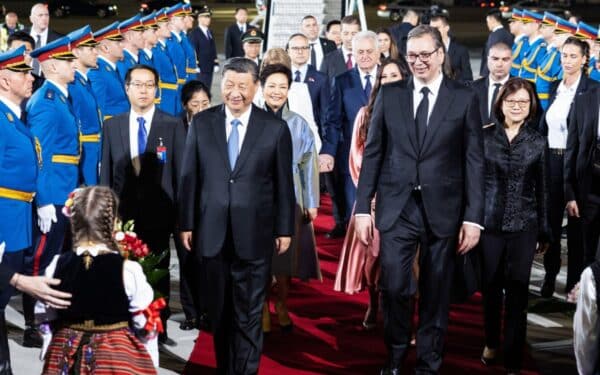Brexit will forever be associated with the notion of taking back control. But what does that mean in practice? Is it a principled objection to a supranational body having significant sway over UK law-making. Or is there a deeper ideological undercurrent, a belief that, in transferring more law-making powers back to the UK, the economy can be radically remade to better suit the country’s specific needs?
A new report by UK in a Changing Europe suggests that, for now, the government does not have a clear answer to that question. By looking at how policy has changed in a range of areas post-Brexit the report reveals a lack of clear priorities and joined-up thinking.
In crude terms, there is a clash between two models. One the one hand, there are developments that fit with a low-regulation Singapore-on-Thames advocated by many Leave campaigners. On the other, there are initiatives that take Britain in a more state-driven, dirigiste direction. One might call this the de-Gaulle-on-Tees model.
The latter bears some of the hallmarks of Boris Johnson’s political agenda. The Subsidy Control Bill, which is currently in the House of Lords, should in theory allow state subsidies to be approved more efficiently than in the EU. Most subsidy providers will be allowed to self-assess their compliance with the rules, whereas in the EU they had to seek prior approval from the Commission. Once in place, the hope is that a more efficient system will accelerate investment in priority areas. Think Red Wall seats sprouting gigafactories to aid the transition to electric vehicles.
Added to this, Defra has initiated significant reforms to England’s agricultural subsidy regime, whereby farmers will receive “public money for public goods” – rewarded for meeting biodiversity and net zero targets. This is a radical departure from the EU’s Common Agricultural Policy which primarily rewards higher food production. Taken together, these two policies have a unifying vision of a more muscular British state which seeks to promote goals of net zero and levelling up through targeted investment.
Yet elsewhere, the Singaporean model still lives. For financial services Rishi Sunak seems to prioritise regulatory freedom over enhanced EU market access in order to increase the international competitiveness of the UK. Reviews are underway into where inherited EU financial regulations can be simplified, as well as how the UK can be at the forefront of developing regulation in emergent sectors such as green and digital finance.
Similarly, the DCMS is looking into the possibility of amending the inherited EU GDPR regulations which govern data privacy. This would mean less bureaucracy for small businesses. But it would imperil the UK-EU data adequacy agreement which allows a free flow of data between the two jurisdictions. As with financial regulation, the instinct here favours regulatory freedom over EU integration.
These contradictory visions make the process of regulatory divergence altogether more challenging.
We know from early case studies – the development of a new UK-specific “UKCA” mark for manufactured goods, for example – that regulatory divergence often involves short-term pain. There is a loss of EU trade as rules are no longer integrated, and/or increased bureaucracy for businesses which must get to grips with a new British regulatory architecture. There are also risks of internal divergence and political tensions within the UK, if a competence is devolved (such as with agriculture) or Northern Ireland cannot follow suit due to the constraints of the Northern Ireland Protocol.
Therefore, to offset these costs, there must be a clear vision of how to maximise the long-term gains from divergence. If the UK has a clear idea of what it wants its regulatory architecture to look like in a decade, it will be much better able to assess where the trade-offs are most worthwhile, and also develop policies which are complementary and mutually reinforcing.
Yet the challenge remains that the Conservative Party lacks a unifying idea of what it wants that long-term vision to be. So far, taking back control seems to have heralded ever more chaos and confusion.
Jöel Reland is a public and foreign policy researcher at UKICE.




